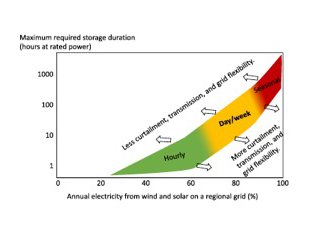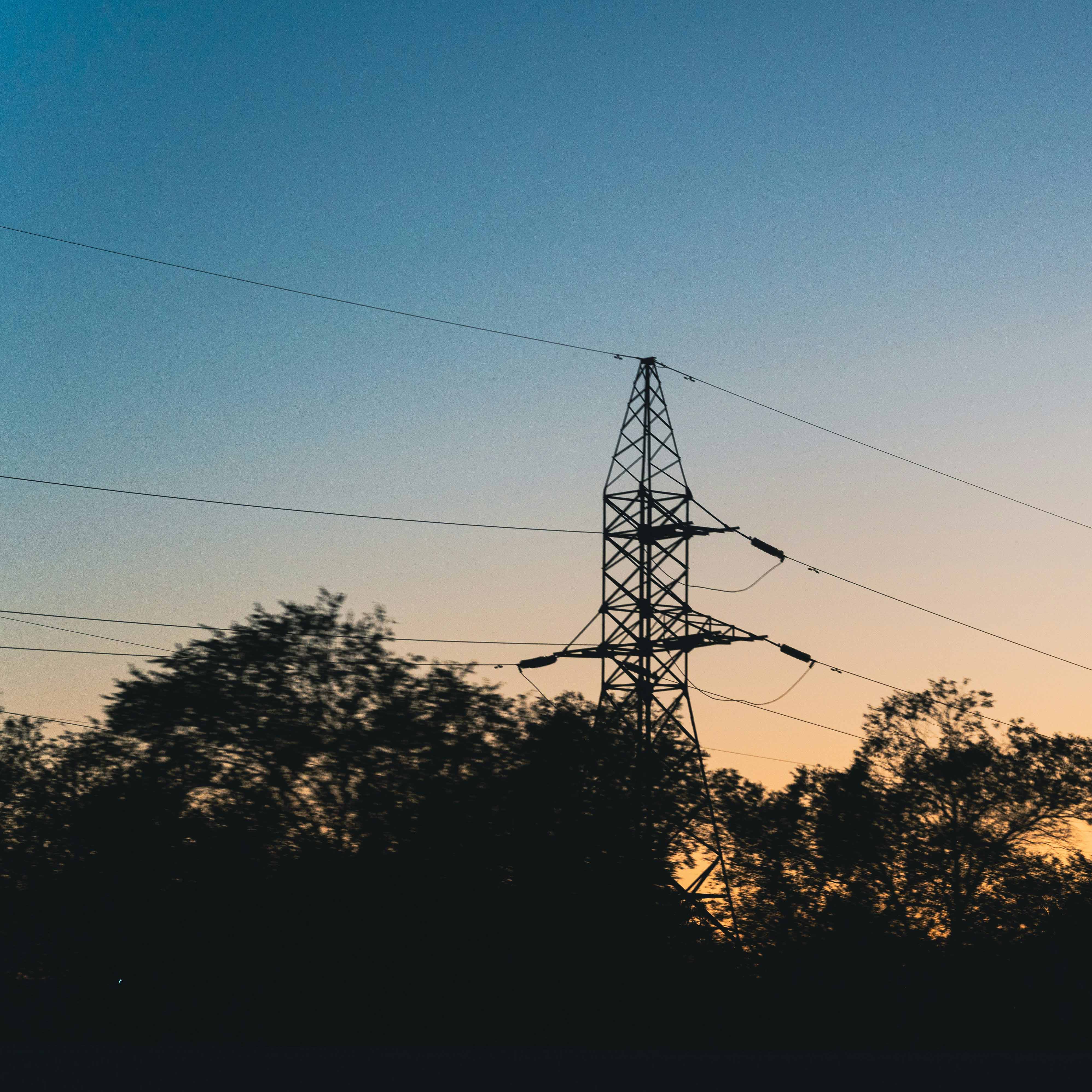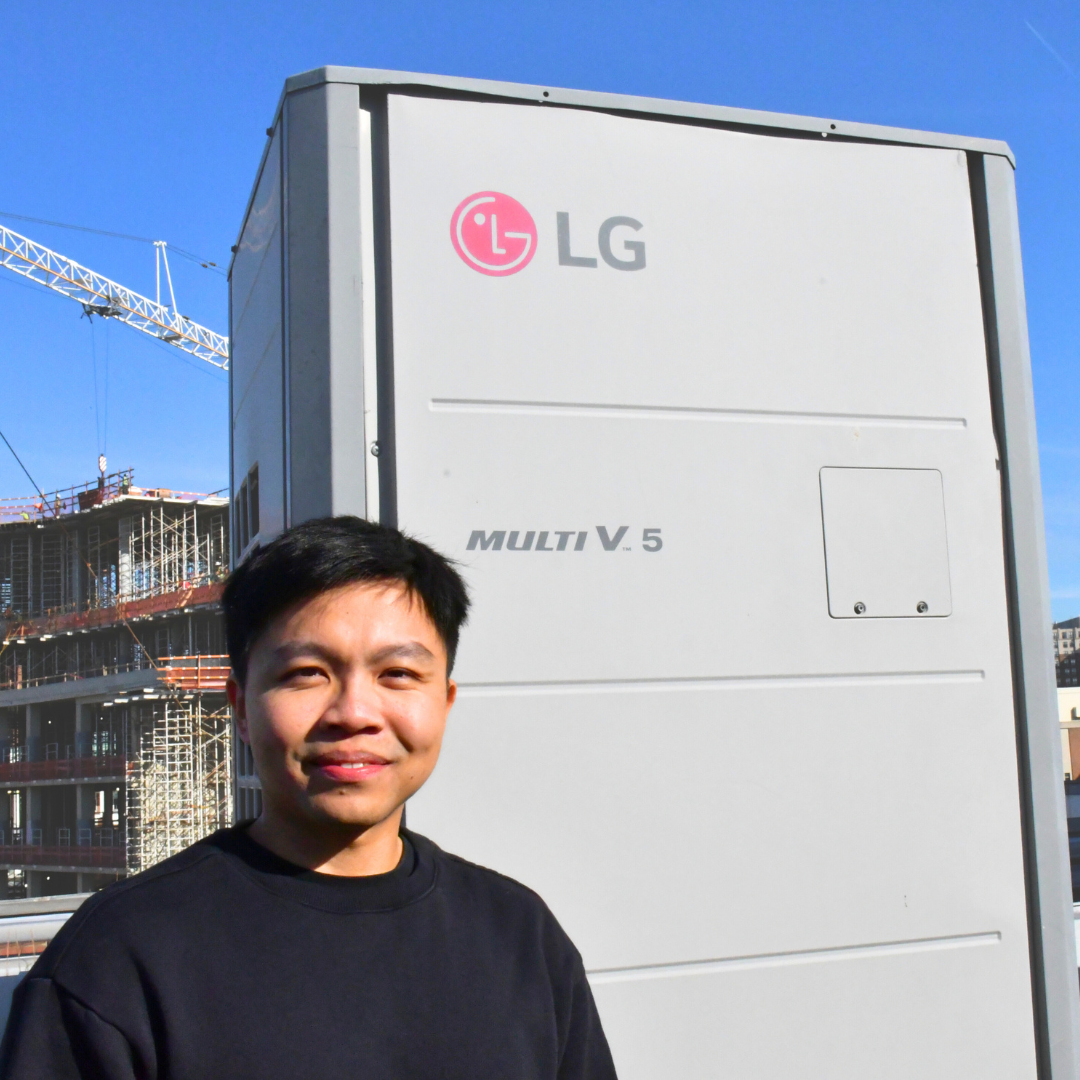News Story
Albertus Provides Perspective on Long-term Energy Storage Solutions

Semi-quantitative overview of the maximum duration of electricity storage needed to ensure demand is met at all times versus the fraction of annual energy from variable generators, such as wind and solar.
Harnessing large quantities of power from various renewable sources including solar, wind, hydro and other technologies requires the development of a cost-effective, application-based technologies for energy storage. Paul Albertus, Associate Director of the Maryland Energy Innovation Institute (MEI2) and UMD Assistant Professor of Chemical and Biomolecular Engineering, and his co-authors examine potential energy storage methods in his recent paper published in Joule. In the article, the authors illustrate the importance of low-cost and high-energy-density storage media while providing motivation for new concepts and approaches for how long-duration electricity storage (LDES) systems could be economical and provide value to the electricity grid.
The paper notes that the US electricity grid is changing rapidly and thereby creating opportunities for new storage applications including integration of renewable power on the grid. Lower costs of natural gas and electricity from renewable sources in addition to the need for grid resiliency due to increased extreme weather events are driving new technologies that require electricity storage with longer durations. LDES systems could be one way to make use of renewables and achieve zero-carbon electricity goals and also serving applications such as backup power. The paper focuses on durations between 10-100 hours of storage and considers both the economic benefits and technological development needed to become the cornerstone of a future grid that is low cost, low carbon and resilient.
For the complete analysis, see:
Albertus et al., Long-Duration Electricity Storage Applications, Economics, and Technologies, Joule (2019), https://doi.org/10.1016/j.joule.2019.11.009
Published December 20, 2019









